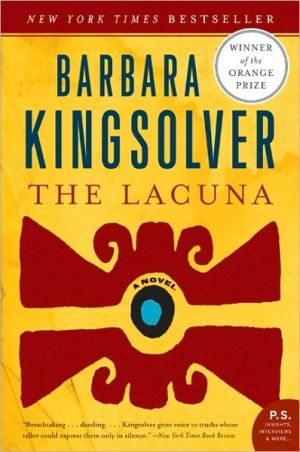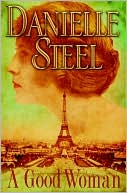The Underdogs: A Novel of the Mexican Revolution
The greatest novel of the Mexican Revolution, in a brilliant new translation by an award-winning translator\ The Underdogs is the first great novel about the first great revolution of the twentieth century. Demetrio Macias, a poor, illiterate Indian, must join the rebels to save his family. Courageous and charismatic, he earns a generalship in Pancho Villa's army, only to become discouraged with the cause after it becomes hopelessly factionalized. At once a spare, moving depiction of the...
Search in google:
The greatest novel of the Mexican Revolution, in a brilliant new translation by an award-winning translatorThe Underdogs is the first great novel about the first great revolution of the twentieth century. Demetrio Macias, a poor, illiterate Indian, must join the rebels to save his family. Courageous and charismatic, he earns a generalship in Pancho Villa's army, only to become discouraged with the cause after it becomes hopelessly factionalized. At once a spare, moving depiction of the limits of political idealism, an authentic representation of Mexico's peasant life, and a timeless portrait of revolution, The Underdogs is an iconic novel of the Latin American experience and a powerful novel about the disillusionment of war.Publishers WeeklyFirst published in 1915, Azuela's groundbreaking novel about a Mexican peasant who becomes a revolutionary leader is now being issued in a revised translation with a set of illuminating footnotes (notes and revisions by Beth E. Jurgensen). Demetrio Macias is the protagonist who joins the rebels in their efforts to overthrow Mexico's corrupt dictator, Porfirio Diaz, and Macias's brash approach to military tactics speeds his rise through the ranks. His background is articulated by journalist Luis Cervantes, who abandons the government to aid the rebels as he provides background on Macias in the early chapters. While the new general's forces engage in a series of hit-and-run battles with Federal troops, Azuela adds two romantic subplots, one about a difficult young woman named Pintada, who bonds with one of the other generals in the company; the other involves Camilla, a peasant girl who expresses her ardor for Cervantes early on, but ends up falling for Macias. The battle scenes are stirring, if somewhat underdeveloped, and Azuela highlights the conflict with a cameo appearance by Pancho Villa as the tide begins to turn against the rebels. Overall, the story is too incomplete to be labeled a classic by modern standards. What makes the book memorable is its portrayal of Macias as an archetype of Mexico's national character, as the peasant expresses his ongoing love for the process and pageantry of the revolution. The translation feels awkward, but Jurgensen's footnotes and the introduction (by Ilan Stavans) add colorful details and definitions while filling in some narrative and historical gaps. (Sept.)
I\ That's no animal, I tell you! . . . Listen to Palomo barking! It must be a human being.\ The woman stared into the darkness of the sierra.\ "What if they're Federals?," said a man who sat squatting and eating, a coarse earthenware plate in his right hand, three folded tortillas in the other.\ The woman made no answer; all her senses were directed outside the hut.\ The beat of horses' hoofs rang in the quarry nearby. Palomo barked again, louder and more angrily.\ "Well, Demetrio, I think you had better hide, all the same."\ Stolidly, the man finished eating; he reached for a water jug and gulped down the water in it. Then he stood up.\ "Your rifle is under the mat," she whispered.\ A tallow candle illumined the small room. In one corner stood a plow, a yoke, a goad, and other agricultural implements. An old adobe mold hung by ropes from the roof and served as a bed; on it a child slept, covered with rags.\ Demetrio buckled his cartridge belt about his waist and picked up his rifle. Tall and well built, with a sanguine, beardless face, he wore shirt and trousers of white cloth, a broad-brimmed straw hat, and leather sandals.\ With slow, measured step, he left the room, vanishing into the impenetrable darkness of the night.\ Palomo, excited to the point of fury, had jumped over the corral fence. Suddenly a shot rang out. The dog moaned, then barked no more.\ Men on horseback rode up, shouting and swearing. Two of them dismounted, while the other hung back to watch the horses.\ "Hey, there, woman, we want food! Eggs, milk, beans, anything you've got! We're starving!"\ "Damned sierra! It would take the Devil himself not to lose his way!"\ "Sergeant, even the Devil would go astray if he were as drunk as you are."\ One of them wore chevrons on his shoulders, the other red stripes on his sleeves.\ "Whose place is this, old woman? . . . What the . . . Isn't anybody home?"\ "What about that light and that child there? Look here, woman, we want to eat, and damn quick, too! Are you coming out, or are we going to make you?"\ "You swine! You've gone and killed my dog! What harm did he ever do you? What did you have against him, poor little Palomo!"\ The woman reentered the house, dragging the dog behind her, very white and fat, with lifeless eyes and limp body.\ "Look at those cheeks, Sergeant! Don't get riled, light of my life: I swear I'll turn your home into a dovecote, see? But by God!"\ "Don't look so haughty, dear, Banish all fear Look at me lovingly Light of my eyes."\ The officer finished singing in his tipsy voice.\ "Tell me what they call this ranch, woman?" the sergeant asked.\ "Lima," the woman replied curtly, carrying wood to the fire and fanning the coals.\ "So we're in Lima, eh, the famous Demetrio Macases country, eh? . . . Do you hear that, Lieutenant? We're in Lima."\ "Lima? What the hell do I care? If I'm bound for hell, Sergeant, I might as well go there now . . . now that I have such a good mount. Look at the cheeks on that darling, look at them! There's a pair of ripe red apples for a fellow to bite into!"\ "I'll wager you know that bandit, lady. . . . I was in the pen with him at Escobedo."\ "Bring me a bottle of tequila, Sergeant; I've decided to spend the night with this little brunette. . . . What's that? The colonel? . . . Why talk about the colonel now? He can go straight to hell. And if he doesn't like it, it's all right with me. Come on, Sergeant, tell the corporal outside to unsaddle the horses and feed them. I'll stay here. Listen, my girl, you let the sergeant fry the eggs and warm up the tortillas; you come here to me. See this wallet full of nice new bills? They're all for you, darling. Sure, I want you to have them. Imagine! I'm drunk, see, a little, and that's why I'm kind of hoarse. . . . I left half my gullet down Guadalajara way, and I've been spitting the other half out all the way up here. Oh, well, who cares? But I want you to have that money. Hey, Sergeant, where's my bottle? Darling, you're awfully far away. Come closer and pour yourself a drink. You won't, eh? Afraid of your . . . er . . . husband . . . or whatever he is? Well, if he's skulking in some hole, you tell him to come out. What the hell do I care? I'm not scared of rats, see!"\ Suddenly a white shadow loomed on the dark threshold.
\ Publishers WeeklyFirst published in 1915, Azuela's groundbreaking novel about a Mexican peasant who becomes a revolutionary leader is now being issued in a revised translation with a set of illuminating footnotes (notes and revisions by Beth E. Jurgensen). Demetrio Macias is the protagonist who joins the rebels in their efforts to overthrow Mexico's corrupt dictator, Porfirio Diaz, and Macias's brash approach to military tactics speeds his rise through the ranks. His background is articulated by journalist Luis Cervantes, who abandons the government to aid the rebels as he provides background on Macias in the early chapters. While the new general's forces engage in a series of hit-and-run battles with Federal troops, Azuela adds two romantic subplots, one about a difficult young woman named Pintada, who bonds with one of the other generals in the company; the other involves Camilla, a peasant girl who expresses her ardor for Cervantes early on, but ends up falling for Macias. The battle scenes are stirring, if somewhat underdeveloped, and Azuela highlights the conflict with a cameo appearance by Pancho Villa as the tide begins to turn against the rebels. Overall, the story is too incomplete to be labeled a classic by modern standards. What makes the book memorable is its portrayal of Macias as an archetype of Mexico's national character, as the peasant expresses his ongoing love for the process and pageantry of the revolution. The translation feels awkward, but Jurgensen's footnotes and the introduction (by Ilan Stavans) add colorful details and definitions while filling in some narrative and historical gaps. (Sept.)\ \ \ \ \ From The Critics"First in this country, the Underdogs should always have a special place, for it describes the aspirations of a native people. At the college level, Fornosx's text offers plenty of material for the Historian and the Professor of Internatonal Literature. But the book can also be enjoyed at a simpler level. It is essentially a compelling tale of human conflicts, grippingly told." -- Studies In Short Fiction\ \








